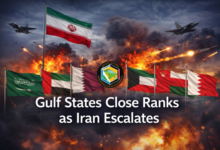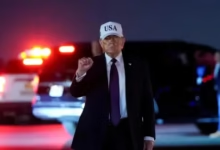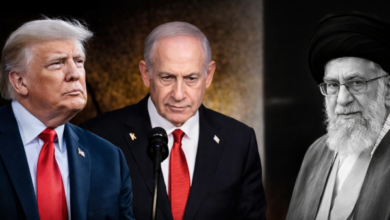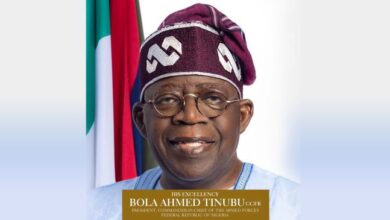Israel and Hamas Begin First Steps Toward U.S.-Brokered Trump Peace Deal
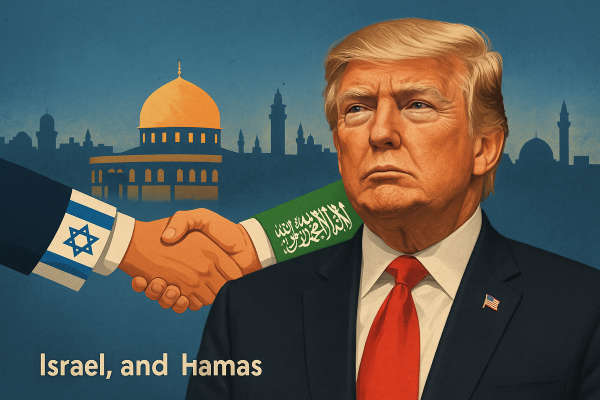
In what could mark the most dramatic breakthrough in Middle East diplomacy in over a decade, Israel and the Palestinian group Hamas have begun implementing the first phase of a U.S.-brokered peace plan announced by President Donald Trump.
The deal, unveiled in Washington and mediated through indirect negotiations in Cairo, Egypt, sets in motion a delicate sequence aimed at ending one of the region’s most protracted and devastating conflicts.
According to reports from Israeli and Palestinian sources, the initial steps involve the release of hostages held in Gaza, coupled with a partial withdrawal of Israeli forces to a pre-agreed line inside the territory — signaling the start of what could evolve into a lasting ceasefire.
Inside the Deal: Hostages for Withdrawal, Peace for Stability
The 20-point peace framework, hailed by global leaders and cautiously welcomed in Tel Aviv and Gaza, outlines a phased roadmap to stabilize the region.
Under the first phase, Hamas will release all hostages captured since the group’s October 7, 2023, attack on Israel — a tragic event that ignited two years of intense warfare.
In exchange, Israel will withdraw its troops to an “initial withdrawal line”, easing military pressure on the densely populated Gaza Strip.
The agreement also includes the release of approximately 250 Palestinians serving life sentences in Israeli prisons, along with 1,700 detainees arrested during the recent conflict.
Hamas, through its prisoner affairs office led by Zaher Jabareen, confirmed that it had already submitted lists of eligible prisoners for release under the agreed criteria and was awaiting final approval from mediators.
“We have honored the agreed framework and await the official confirmation,” Jabareen said in a statement released in Gaza.
Diplomatic Triumph or Political Gamble?
For President Donald Trump, the peace deal represents a major diplomatic win and a possible defining legacy of his administration.
Addressing reporters from the White House, Trump described the accord as “the first real opportunity in years to end bloodshed and begin rebuilding lives.”
“The courage it takes to make peace is greater than the courage it takes to fight,” Trump declared.
The U.S. president credited Egyptian intermediaries and backchannel negotiators for achieving what many thought impossible — direct progress toward normalization between Israel and Hamas.
Observers note that the deal could potentially reshape the Middle East security landscape, reframe U.S. influence in the region, and re-establish Washington as a credible peace broker after years of diplomatic stagnation.
Reactions: Cautious Optimism Across the Globe
Reactions to the announcement have been mixed but largely positive.
Israeli Prime Minister Benjamin Netanyahu hailed the agreement as “a diplomatic success and a national and moral victory for Israel.”
In a message posted on X (formerly Twitter), he expressed confidence that the arrangement would “restore security, dignity, and hope to the Israeli people.”
President Isaac Herzog went further, calling Trump “a man of peace who deserves the Nobel Peace Prize.”
“There is no doubt that he deserves the Nobel Peace Prize for this,” Herzog said. “This deal opens a new horizon of hope for our region.”
From Washington to Riyadh, Berlin to Cairo, world leaders have commended the initiative, urging both sides to honor their commitments and build trust through implementation rather than rhetoric.
The Regional Stakes: Hope Amid Fragility
Analysts warn that the peace deal, while historic, is fraught with challenges.
The mutual distrust between Israel and Hamas, the political fractures within the Palestinian territories, and the unresolved question of Gaza’s long-term governance could all complicate the agreement’s execution.
Still, experts agree that the deal could reset the trajectory of Middle East politics — reducing humanitarian suffering and opening economic opportunities for reconstruction.
According to BRANDECONOMY analysis, the agreement may also trigger a regional domino effect, influencing diplomatic recalibrations across the Arab world and reigniting momentum for the long-dormant two-state solution.
Global Spotlight: Trump’s Quest for the Nobel Peace Prize
The deal’s timing — just days before the 2025 Nobel Peace Prize announcement — has not gone unnoticed.
At the United Nations General Assembly in New York, Trump hinted at his diplomatic achievements, claiming credit for ending several regional conflicts since taking office earlier in the year.
“Peace through strength is not just a slogan — it’s a principle that works,” Trump told world leaders.
With Israel’s endorsement and Hamas’s cooperation, many observers believe Trump’s candidacy for the Nobel Prize could gain traction — although others warn that premature celebration could undermine delicate negotiations still underway.
The Road Ahead: Implementation and Uncertainty
The Israeli Security Cabinet is expected to meet in Tel Aviv to review the details of the agreement before a full government vote, while Hamas leaders in Gaza are holding consultations to confirm the prisoner release arrangements.
If implemented smoothly, this first phase could pave the way for broader peace talks on reconstruction, border management, and the status of Jerusalem — the thorniest issue in Israeli-Palestinian relations.
“This is a fragile truce built on a foundation of cautious trust,” noted BRANDECONOMY’s foreign policy desk. “But every lasting peace begins with a fragile first step.”
BRANDECONOMY Analysis: A Turning Point for the Middle East
From an economic and geopolitical perspective, this potential peace breakthrough holds far-reaching implications:
- Humanitarian Impact: Thousands of displaced families in Gaza could return home, easing one of the world’s most severe refugee crises.
- Trade and Reconstruction: Peace could unlock billions of dollars in foreign aid, infrastructure rebuilding, and regional commerce.
- Global Energy Stability: With tensions reduced, Middle Eastern energy exports could stabilize, easing global inflationary pressures.
- Diplomatic Reset: The U.S., long criticized for disengagement from Middle Eastern diplomacy, would regain leverage as a credible peace mediator.
However, experts caution that the implementation phase remains the true test of the Trump Deal’s durability.
The region’s long history of short-lived truces and mutual suspicion means that success will depend on enforcement mechanisms, monitoring, and sustained political will.
Conclusion: Fragile Peace, Renewed Hope
As Israel and Hamas cautiously take the first steps toward enacting the Trump peace plan, the world watches closely.
For millions in the region — weary from years of violence and displacement — this fragile moment represents not just a political milestone but a human turning point.
The coming months will determine whether this agreement becomes a historic peace accord or another missed opportunity in the long search for Middle East stability.
What remains undeniable is that, for the first time in years, Israelis and Palestinians are talking peace — not war.
SEO Keywords:
Israel Hamas peace deal, Trump peace plan, Middle East diplomacy, Gaza hostages release, U.S.-brokered peace agreement, Nobel Peace Prize Trump, Gaza truce, Israeli withdrawal, AfCFTA, BRANDECONOMY
Slug:
israel-hamas-first-steps-trump-peace-deal-2025
Meta Description:
Israel and Hamas have begun implementing the first phase of a U.S.-brokered peace plan announced by President Donald Trump, involving hostage releases and Israeli troop withdrawals, marking a potential turning point for Middle East peace.


